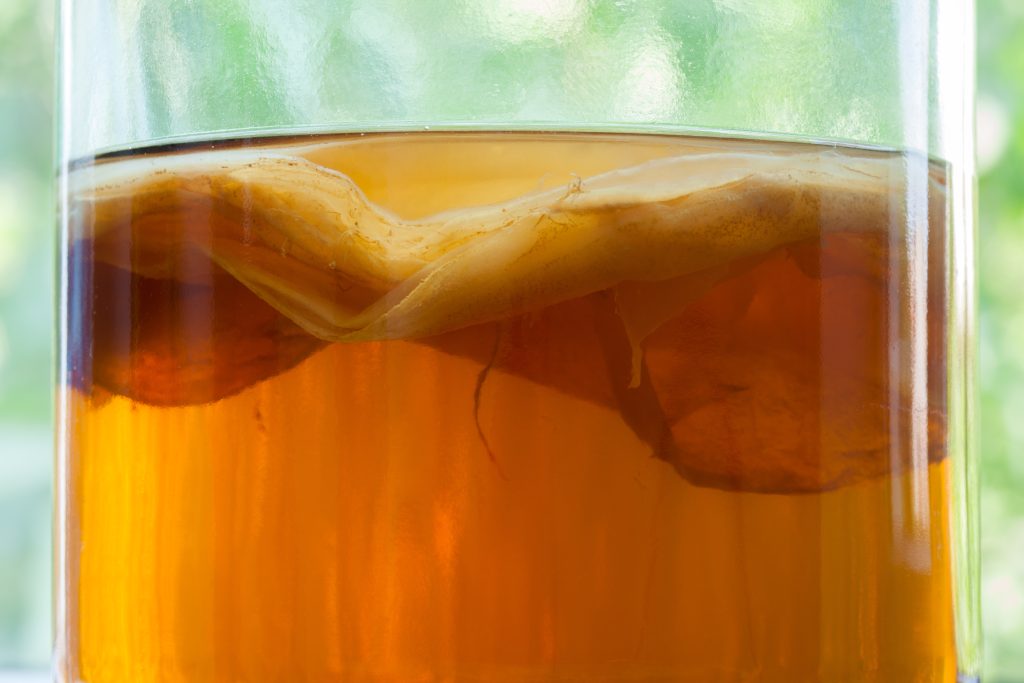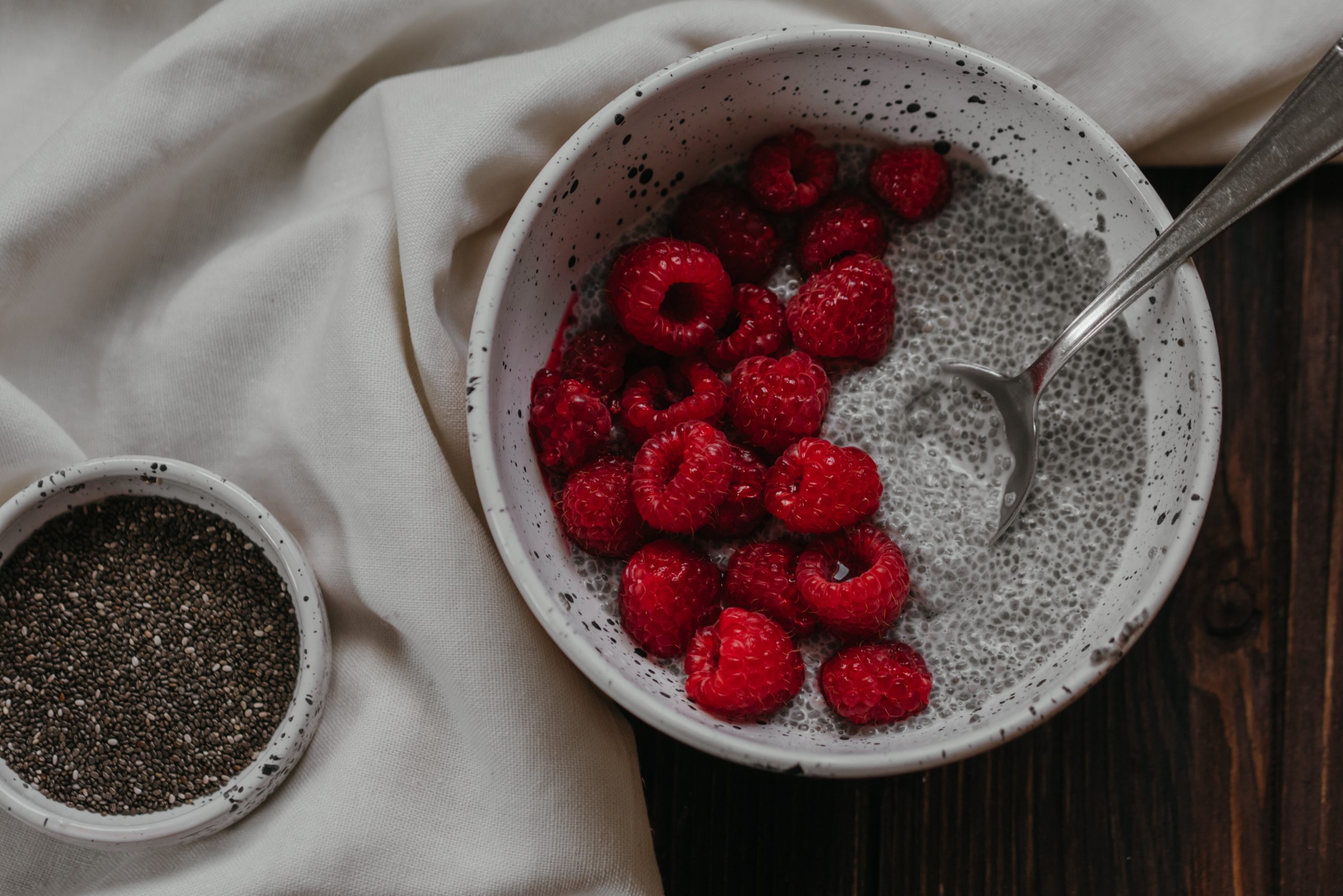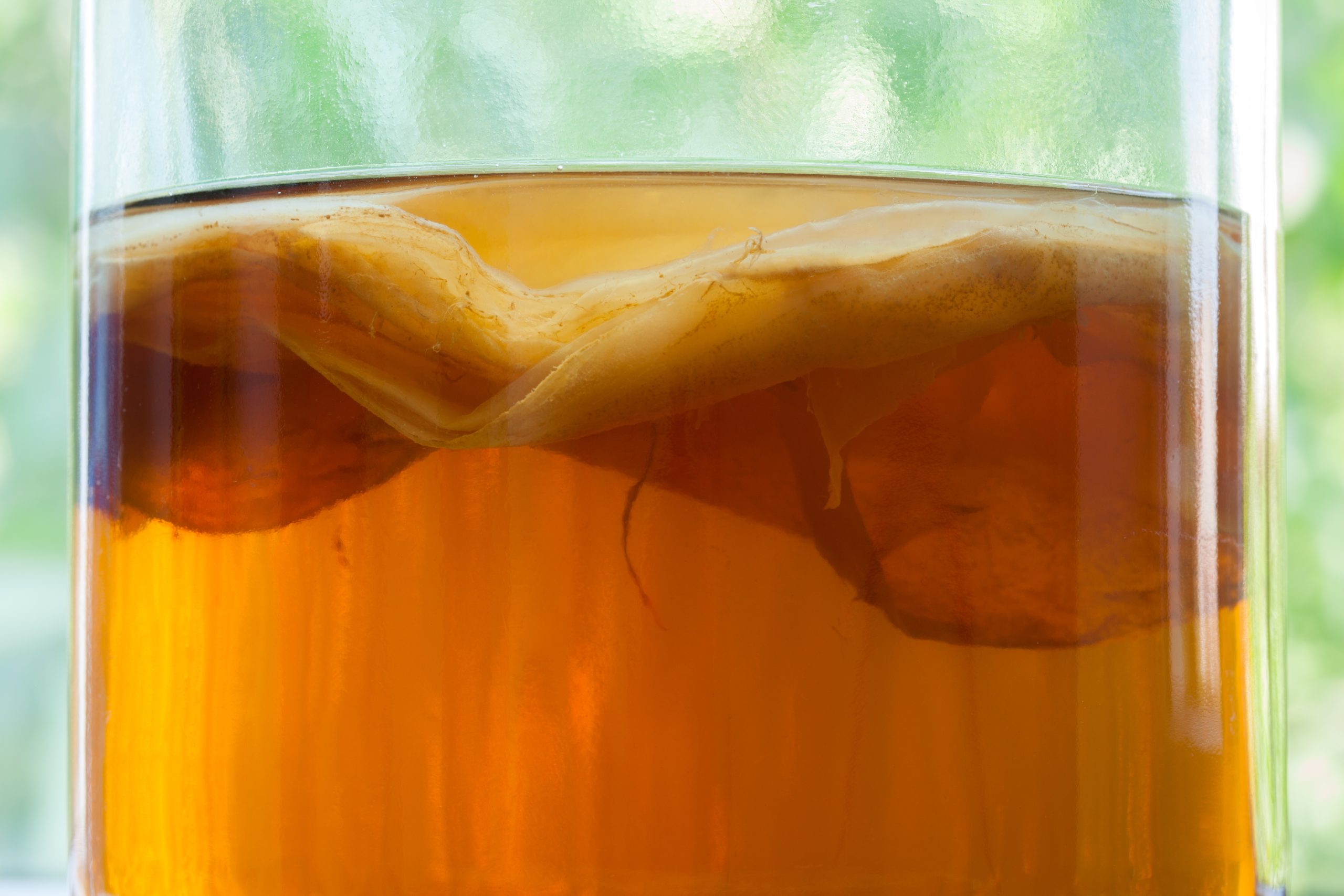Water alone isn’t enough after an exhausting workout, as the body loses too much energy, and pure water can’t fully replenish the body. Nowadays, athletes have found a healthy solution – they drink kombucha instead of artificially sweetened sports drinks.
Kombucha is a natural equivalent of bluish-bottled fluids, which helps restore the body’s water-electrolyte balance. ⠀
‘Kombucha helps my body work well and recover properly,’ said Devon Crosby-Helms, winner of the 2012 San Francisco Marathon. ‘It’s not the kind of drink I drink casually – No, I take it every day, it’s important to me as an athlete and it’s my secret weapon.’
But not only sportspeople should enjoy the benefits of this unique beverage. What benefits does this beverage offer to regular individuals? Let’s find out.
Kombucha – Nutrition Facts

Kombucha has a very low energy value as well as zero protein and fat content. Also, it has low carbs, a small amount of sugar, and zero fibre.
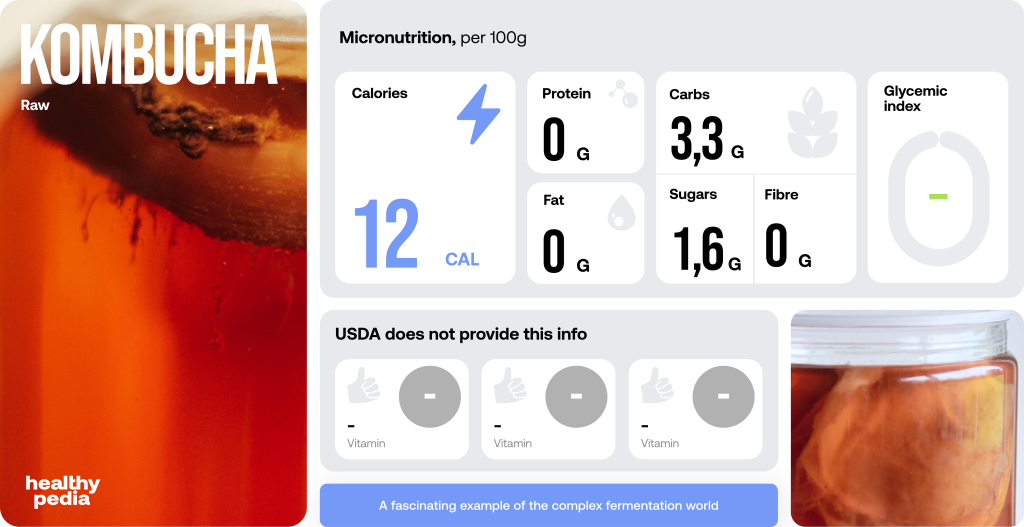
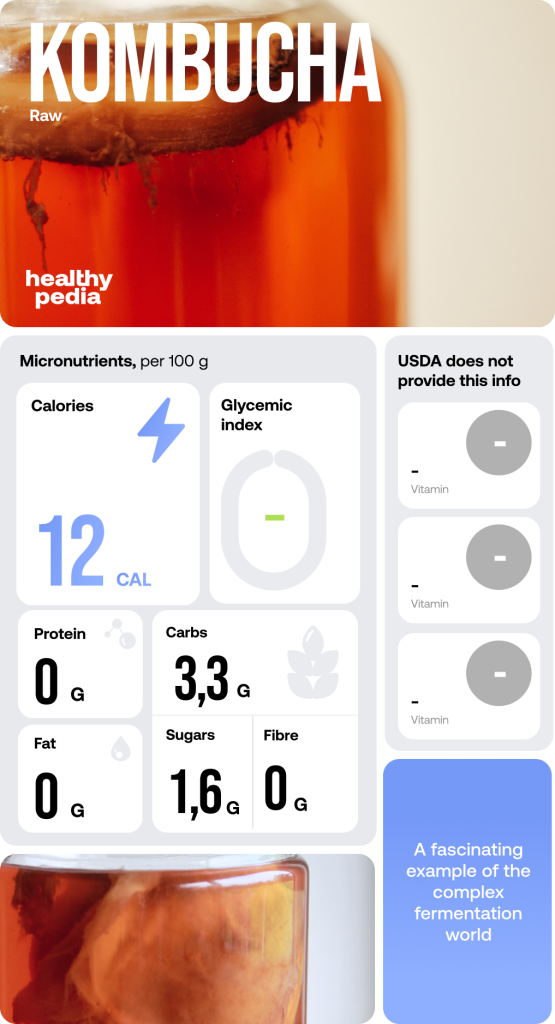
Kombucha – Good news

Kombucha starts its life as a sweet tea. Brewers both at home and in the commercial sector start their batches by boiling tea and adding sugar. The transformation of tea into kombucha is called SCOBY, short for Symbiotic Culture of Bacteria and Yeast, which helps the sweet tea ferment become kombucha and brings you a lot of healthy benefits.
1Protects from cancer
In studies, kombucha helped prevent the growth and spread of cancer cells due to its high concentration of tea polyphenols and antioxidants.
The anti-cancer properties of tea polyphenols are not well understood. However, polyphenols are thought to block gene mutation and cancer cell growth and promote cancer cell death. For this very reason, it is not a surprise that tea lovers are much less likely to get various types of cancer.
2Provides the antioxidant benefits of green tea
Green tea can be considered one of the healthiest drinks on the planet. This is because green tea is packed with bioactive compounds, such as polyphenols, which act as powerful antioxidants in the body. Kombucha made from green tea contains many of the same plant compounds and presumably boasts some of the same advantages.
3Lowers the risk of heart disease
Tea, especially green tea, in kombucha protects LDL ‘bad’ cholesterol particles from oxidation, which is thought to contribute to heart disease. In fact, the incidence of myocardial infarction is estimated to be reduced by 11% with an increase in tea consumption of 3 cups a day, this benefit can extend to kombucha.
 Source: PubMed
Source: PubMed 4Helps with type 2 diabetes
Type 2 diabetes affects more than 450 million people worldwide, which is incredibly shocking. Kombucha made with green tea is probably even more beneficial, as green tea itself has been proven to lower blood sugar levels.
Lactic acid bacteria found in kombucha have been shown to be effective in relieving diabetes, as it has the ability to lower the postprandial glucose and insulin responses in humans. However, further human studies are needed to investigate the benefits of kombucha for blood sugar control.
5May kill bacteria
One of the main substances produced by the fermentation of kombucha is acetic acid, which is also abundant in vinegar. Acetic acid can kill many potentially harmful microorganisms. Kombucha, made from black or green tea, has strong antibacterial properties, especially against infection-causing bacteria and Candida yeast. These antimicrobial effects inhibit the growth of unwanted bacteria and yeasts but do not affect the beneficial, probiotic bacteria and yeasts that take part in kombucha fermentation.
6Contributes to weight loss
Acetic acid has been shown to increase energy expenditure and reduce body weight and fat mass. Acetic acid has also been shown to reduce body weight, visceral and abdominal fat mass. Consumption of 15 ml of acetic acid per day was sufficient to achieve these effects.
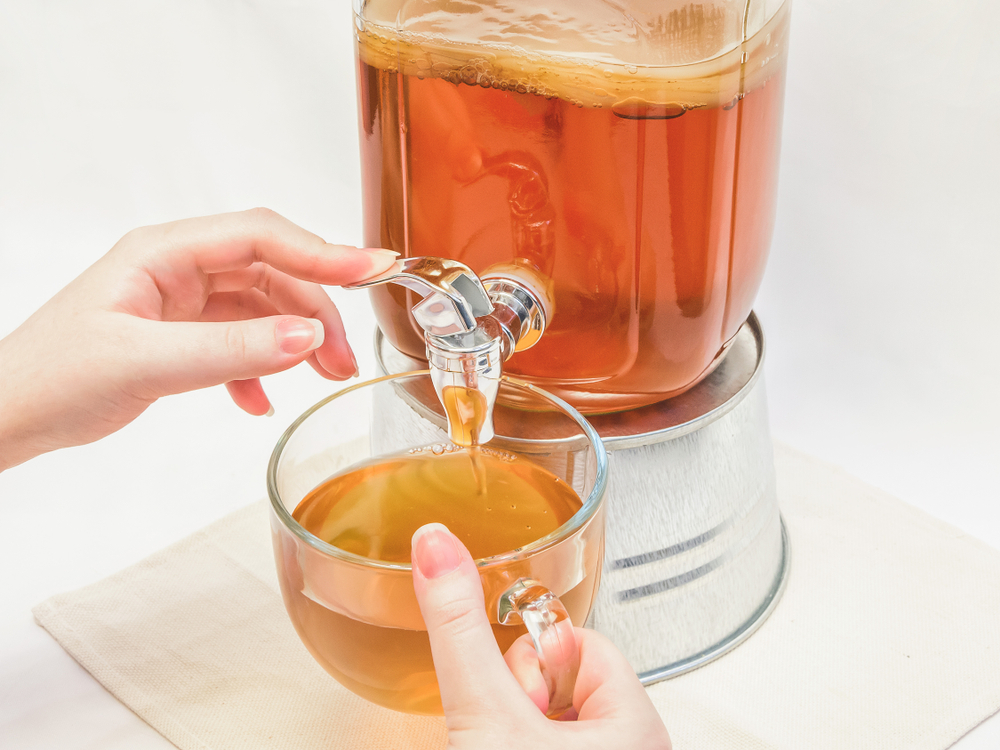
7Protects liver health
Antioxidants are substances that combat free radicals, the reactive molecules that can damage your cells. Kombucha, particularly when made with green tea, has an antioxidant effect on the liver. Antioxidant molecules formed during fermentation may be responsible for the effective hepatoprotective and therapeutic properties of kombucha tea. Hepatoprotection is the ability of a chemical substance to prevent damage to the liver. This is the opposite of hepatotoxicity.
8Kombucha is a potential source of probiotics
In the process of making kombucha, a strain of bacteria, yeast, and sugar are added to black or green tea, which is then fermented for at least a week. A large number of bacteria also grows in the mixture. Although there is no evidence yet of the probiotic benefits of kombucha, it does contain several species of lactic acid bacteria that can fulfil a probiotic function.
Kombucha – Some bad news

Kombucha is a widely popular fermented tea drink with many health benefits. However, if it is overconsumed or prepared incorrectly, it may lead to negative health effects.
You can buy kombucha in shops or make your own at home. However, remember to prepare it correctly. Contaminated or over-fermented kombucha can cause serious health problems. Home-made kombucha can also contain up to 3% alcohol. A safer option is to buy kombucha in a shop or online. Commercial products taste better and are considered non-alcoholic as they must contain less than 0.5% alcohol.
Drinking too much kombucha can cause side effects. As kombucha is carbonated, too much of it can lead to bloating.
When carbonated drinks are consumed, carbon dioxide enters the digestive system and can cause abdominal bloating and excessive gas. In addition, kombucha contains compounds called FODMAPs, specific types of carbohydrates that can cause digestive upset in many people, especially those suffering from irritable bowel syndrome.
Many kombucha drinks are sweetened with fruit juice or cane sugar to make the product more desirable to customers. Although this can make kombucha taste good, it increases the sugar content of the drink.
If consumed in excess, added sugars, especially in sugar-sweetened drinks, can have a negative impact on your health for a number of reasons. For example, sugar-sweetened drinks are associated with an increased risk of diabetes, obesity, fatty liver disease and cardiovascular disease.
So, before you buy kombucha, it is better to read the ingredients of the drink and make sure the manufacturer has not added any extra sugar or other sweeteners. Look for kombucha drinks containing less than 4 grams of sugar per serving to keep your sugar intake to a minimum.
Fun & curious facts about kombucha
-
Kombucha may be a healthier alternative to beer. Both kombucha and beer are born from the fermentation process, so in that sense, we can think of kombucha as the cousin of beer.
-
Commercial kombucha which can be found in grocery shops is labelled as non-alcoholic because it contains less than 0.5% alcohol. It might not be enough to get that buzz as a few bottles of beer, but it is a healthier and more refreshing alternative to beer on a hot sunny day.
Let’s sum kombucha up

Kombucha is a much-loved, popular drink with a variety of positive effects on the human body. The consumption of kombucha will fill your body with antioxidants, kill harmful bacteria, reduce the risk of heart disease, fight cancer cells, and can help with type 2 diabetes. Kombucha is also a potential carrier of probiotics for the gut. When buying kombucha, make sure it contains no added sugar or other sweeteners; always read the ingredients list. If you try preparing homemade kombucha, make sure you do it correctly. Improperly made or contaminated kombucha can have harmful effects.
Not enough? Here are some more from our colleagues!
The Horizons Health YouTube channel is your one-stop destination for health and nutrition tips that are backed by science to improve your health. Here is an informative video about the health benefits of kombucha.

